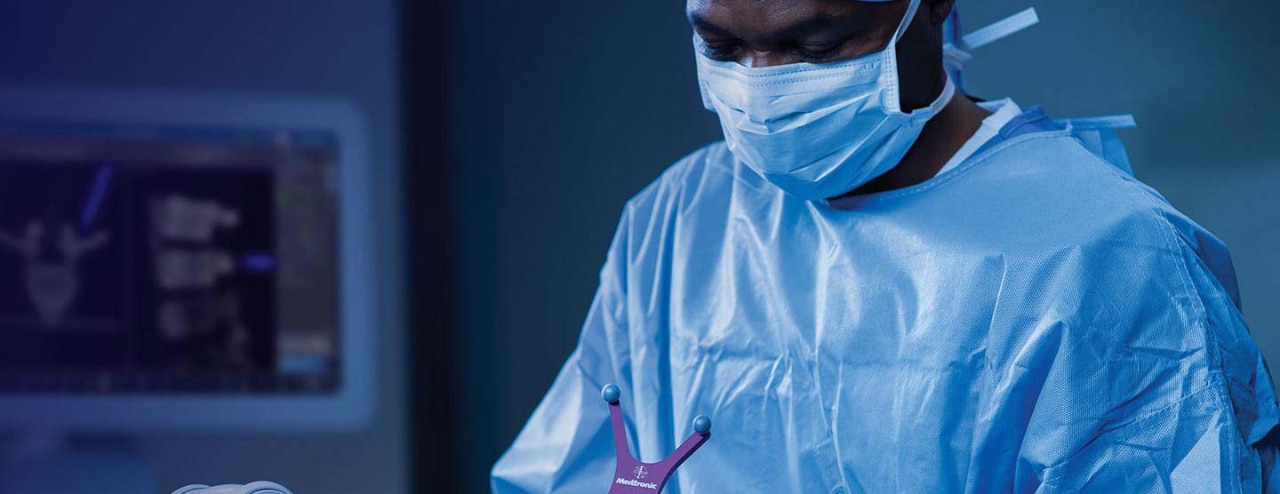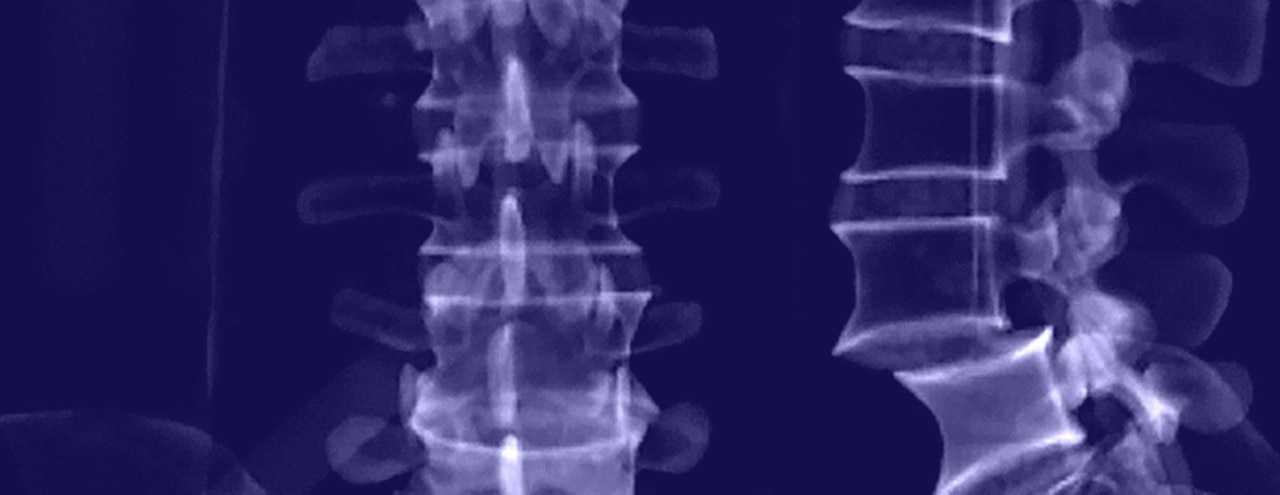

Healthcare technology
Improving people’s lives with groundbreaking tech
How we reinvent care through artificial intelligence, data insights, and robotic-assisted surgery
It’s the size of a vitamin, but it’s a pacemaker. It’s a tiny wireless machine, but it can listen, syncing up your heartbeat based on the blood flow vibrations it hears. Technology is understanding and unlocking the world’s most complex operating system — the human body. By using tools like artificial intelligence (AI), robotic-assisted surgery, data analytics, and predictive modeling, we are personalizing care to make it more efficient, accessible, and equitable.
Each of us is unique. That’s why a one-size-fits-all approach to healthcare doesn’t work. Data is the key to creating therapies for real people in real time. By using tools like AI and machine learning, we gain new insights into the human body to create solutions that help patients and clinicians. Our new intelligent endoscopy system uses AI to scan every image taken during a colonoscopy in milliseconds and alerts physicians to the presence of lesions — including small, flat polyps that can easily go undetected by the human eye. Designed to be a powerful new tool in the early detection of colorectal cancer, the system relies on highly effective algorithms to sort through tremendous amounts of data for insight-driven care.
To help create the most effective technology for patients, our engineers build “digital twins,” virtual representations of devices to predict how they will respond in the human body. Combining computer models and real-world data paves the way for personalized medicine.
Connected devices help patients take control of their health, giving them greater freedom to live their lives. That’s why we design medical devices with the power to connect to smartphones and tablets. In today’s fast-paced, technology-driven world, it’s what patients expect, and what they deserve. With our hybrid closed-loop system for type 1 diabetes — which combines insulin pump therapy and continuous glucose monitoring — patients and caregivers can receive regular health updates and alerts. And the power of connected care is available for diabetes patients who rely on multiple daily injections too, thanks to the integration of our continuous glucose monitoring system with the only smart insulin pen cleared by the FDA. Now patients can track up-to-date glucose readings and dosage information on a single app.
Already, robots help deliver our packages and clean our homes. Now they’re also giving patients more options than ever. While they don’t replace the expertise of surgeons, our robotic-assisted surgery technologies are designed to provide unparalleled access and precision in complex spine and cranial procedures and minimally invasive soft-tissue surgeries.
Combining robotic-assisted surgery with next-generation computing, visualization, and artificial intelligence may give clinicians a new way to deliver more predictable, standardized — yet personalized — care. By using our new surgical video and data platform, clinicians can record, store, and analyze procedures. So every surgery can be a learning opportunity to improve outcomes, taking the expression “see one, do one, teach one” to a new level.
Predicting the future is hard. But we can tell you this: Medtronic technologies transform the lives of two people every second, every hour, every day. And counting. Our engineers and scientists work in relentless pursuit of solutions that improve lives, harnessing the power of artificial intelligence, surgical robotics, and miniaturization. We may not know what the future holds, but we are boldly attacking the most challenging health problems facing humanity, searching out and finding solutions.
Explore topics:





